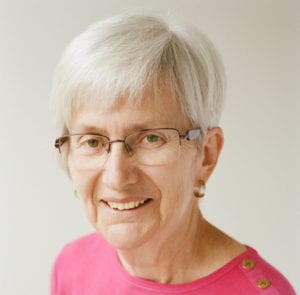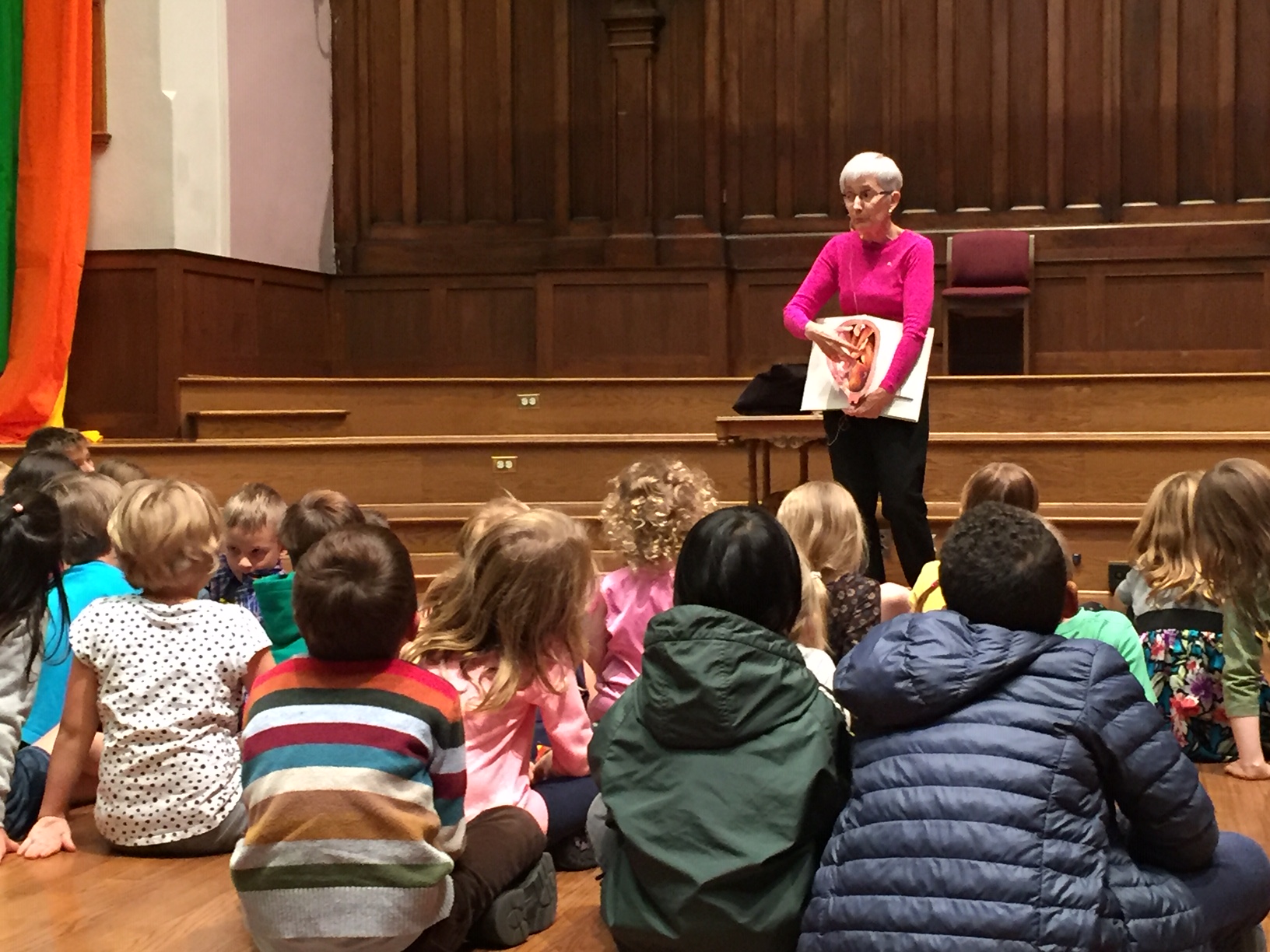Meg Hickling is a retired nurse and sexual health educator who led sex-ed workshops for children, teens and adults for more than 40 years. Widely regarded as a pioneer in sex-ed, she has published several books, which have been translated into multiple languages. She taught across Canada and in other countries, working with schools, Indigenous communities and centres of faith. She was inducted into the Order of Canada in 2001 and retired from teaching sex-ed in 2017. She spoke to Emma Prestwich.
Emma: How did you get into teaching sex-ed?
You may unsubscribe from any of our newsletters at any time.
Meg: When I was nursing, I looked after people who were really ill and some of whom died because they just didn’t have the knowledge to seek help for a sexual health problem.
I remember one man who died because he was an old cowboy, and he laid in his bunk in the bunkhouse for a week not being able to urinate because he had prostate enlargement. He said, “I’ve learned the proper word is penis since I’ve been in hospital, but the only word I had was pecker, and I knew it was rude, and I couldn’t bring myself to go to the doctor and say, ‘there’s something wrong with my pecker.’” By the time he got into hospital, the urine had backed up into his kidneys and destroyed them, and he died.
Of course, abortion was still illegal, so we had lots of [backstreet abortions], and women begging us to tell them how to prevent pregnancies and we weren’t allowed to. The doctors didn’t seem to be any help at all.
It wasn’t until [Pierre] Trudeau changed the law in ‘69, when he made his famous statement that government had no place in the bedrooms of the nation, that contraception was allowed. It was just heartbreaking to know that people were growing up and becoming adults and trying hard to take care of themselves, but had no clue because no one would teach them.
I remember as a little kid, thinking how often things were not fair and I found myself thinking the same thing as an adult.
So when my three children were finally all in school, I was looking around for a volunteer job, and a friend mentioned that Planned Parenthood in Vancouver was looking for volunteers. We volunteered because we thought as nurses, we would be working in their contraceptive clinic, but during the training, the educator discovered that I had talked to my children and they were well educated.
She had begun to get phone calls from preschools, from parents asking how to explain where babies came from to their children. Of course, in the late ‘70s, those were flower children, who had grown up having free sex all over the place, but as many of them told me, they had lots of sex, but they didn’t ever talk about it with their partners. And so their minds were open to answering their kids’ questions, but they didn’t know how to go about it.
So the educator said to me, “look, you talk to your kids,” and she was a single woman and didn’t have any children. She said, “you’d be a much better teacher about this than I would.”

Emma: Have you had to tailor the workshops at all for different audiences? For example, if you were doing a workshop at a mosque, were there specific requests for phrasing, for sensitivity?
Meg: No, because I think they recognized that I would be sensitive. But I didn’t tailor them to the audiences, because often the request from a mosque or synagogue came because the young people in their congregations would have heard me at school. And then they would have gone home and said “this was really, really interesting.” So for the mosques in particular, they would always ask me to come and meet with the elders and the faith leaders and they would quiz me about what I was going to say. They were pretty thorough in making sure that I wasn’t going to say anything that was contrary to their beliefs, and of course I don’t, because it’s science.
All of the great faiths believe the same things about human sexuality, especially [that] sexual activity is an adult activity. Nobody ever asked me to say that sex was only for marriage, for instance, because I already say to the kids, “this is how sex happens and some of you come from families that believe you should be married before you have sex and you need to know what the rules are for your family so you need to go home and talk with them about that.”
I remember in one school that was about 80 per cent Hindu, it was only the men who came out. The women didn’t come because they were home with the kids and so many of the wives didn’t speak English. The men, at the end of the session, came and said, “do you think you could learn Hindi so you could talk to our wives?” Because they are the ones that are home with the kids, they are the ones that do the education and because it’s such a taboo subject, or has been in their culture, the men didn’t feel comfortable telling their wives what they had learned, so once the schools recognized that, they began hiring interpreters. At one school in particular, there were seven different language groups represented by interpreters, and so they were doing simultaneous translations in seven different corners.
Emma: What do you think about the Ontario government’s change to the sex-ed curriculum?
Meg: Of course, it’s a really regressive move. What so many people don’t understand is that children are fully immersed in our culture and they’re bombarded by the media, so parents will say things like, “we don’t want them to hear about homosexuality.” They’ve already heard about it. Even in kindergarten, kids will talk about gays and lesbians and transgendered people and all the rest of it, and if you could step in at that point and start explaining to them about all of this, they would grow up without the prejudice and the animosity and the fear that’s around it. But the parents have never had any education in this area and unfortunately, a lot of them think that’s it’s catching.
Just the other day I met a woman like yourself, who had heard me speak, and she said, at first, when I was in primary school (kindergarten to grade 3), my parents wouldn’t let me come, because they thought I was too young, and she said but they did allow me to come in elementary (Grades 4 to 7), and she said, “I have no idea why they thought I was so young. It was the dumbest mistake they ever made, because I heard it all anyway secondhand from my friends.” She said, “I think parents just misunderstand how much children are exposed to and the questions that they have and they have nowhere to go with those questions.”
There’s still this stigma about it and it’s really hard for kids. And of course, there’s so much misinformation now in social media and I know that that’s causing all kinds of problems. So we need this and I think Ontario’s making a huge mistake.
There’s still this stigma about it and it’s really hard for kids. And of course, there’s so much misinformation now in social media and I know that that’s causing all kinds of problems.
Emma: Over the 40 years that you did these workshops and worked with schools and churches and families, are there any fun stories that you remember?
Meg: There were funny stories all the time. I always tell parents that the primaries are the ones who ask the most innocent questions and you can see how they try to make sense of the world from bits and pieces that they’ve heard. In one primary class, when I was saying the penis goes into the vagina for the sperm to be delivered to the ovum, this child spoke up and said, “Yeah, and my dad plants radishes too!” You have to understand that a lot of times, people say to children, “the father plants a seed in the mother, and that’s how she gets pregnant.” It was in the spring and they’d been planting radish seeds, and so to him, that was a logical connection.
Another time, a boy said that his mother had told him that babies came from the hospital, and he said, “they grow them in a nursery on the top of the hospital and the doctors plant the seeds and the nurses fertilize them and then when they’re big enough, the doctor cuts the cord and gives the baby to someone who wants a baby,” and it was just like harvesting cucumbers. You could see how he put various bits of information that had come to him together to make that magical story.
When I was telling that story to a group of parents, one mom said, “I guess I’m stuck at the primary or the preschool level with magical stories. I had no idea how to tell my four year old that I was having another baby. So she said, “I never said anything to him through the pregnancy,” but close to delivery time, she said, “I’m going to go to the hospital next week and get a baby, and Grandma is going to come and stay with you.” He said, “that would be OK, but could she please be sure that she got a boy baby, because the neighbours had a girl baby, and he thought it cried too much. So she said, “I will see what I can do.” So off she went, and she didn’t do very well, because she came back with a baby sister, and he said, “take it back and change it, I wanted a baby brother.” She said, “I told him that I couldn’t change it because the hospital had run out of baby boys. There you are, I’m an adult and I’m still telling magical stories.”
So sometimes they stay with you because you don’t lose them through good education.
There was one other really funny one. When I was talking to some Grade 1s, and I said the penis goes into the vagina and that’s called having sex, this little boy said, “do you have to be married to have a baby?” Before I could say a word, another child spoke up and said, “of course you do, silly, somebody has to drive you to the hospital.” And from the back of the room came, “I think you could get a taxi.”
They really are something, but I’ve got some funny notes from kids too: “Of all the jobs in all the world, why did you choose this one?” It has just been wonderful.
This interview has been condensed and edited. For more of Broadview’s award-winning content, subscribe to the magazine today.













